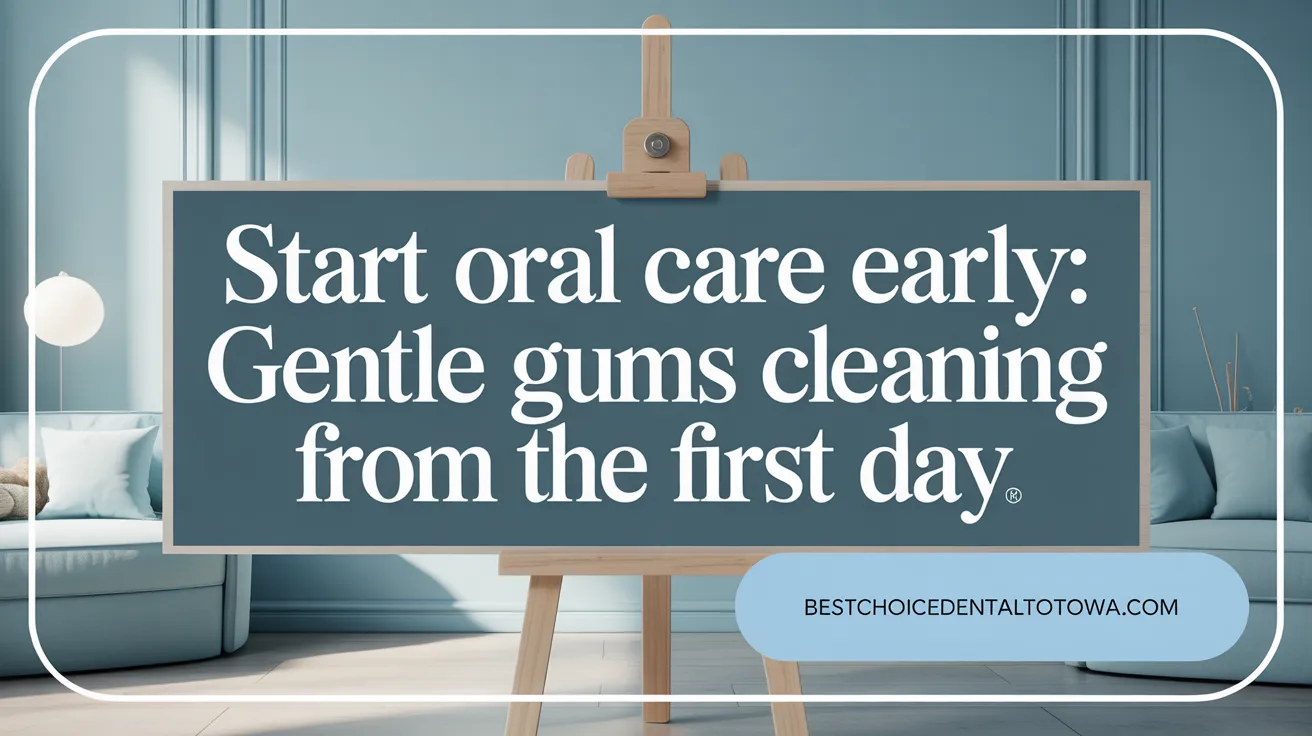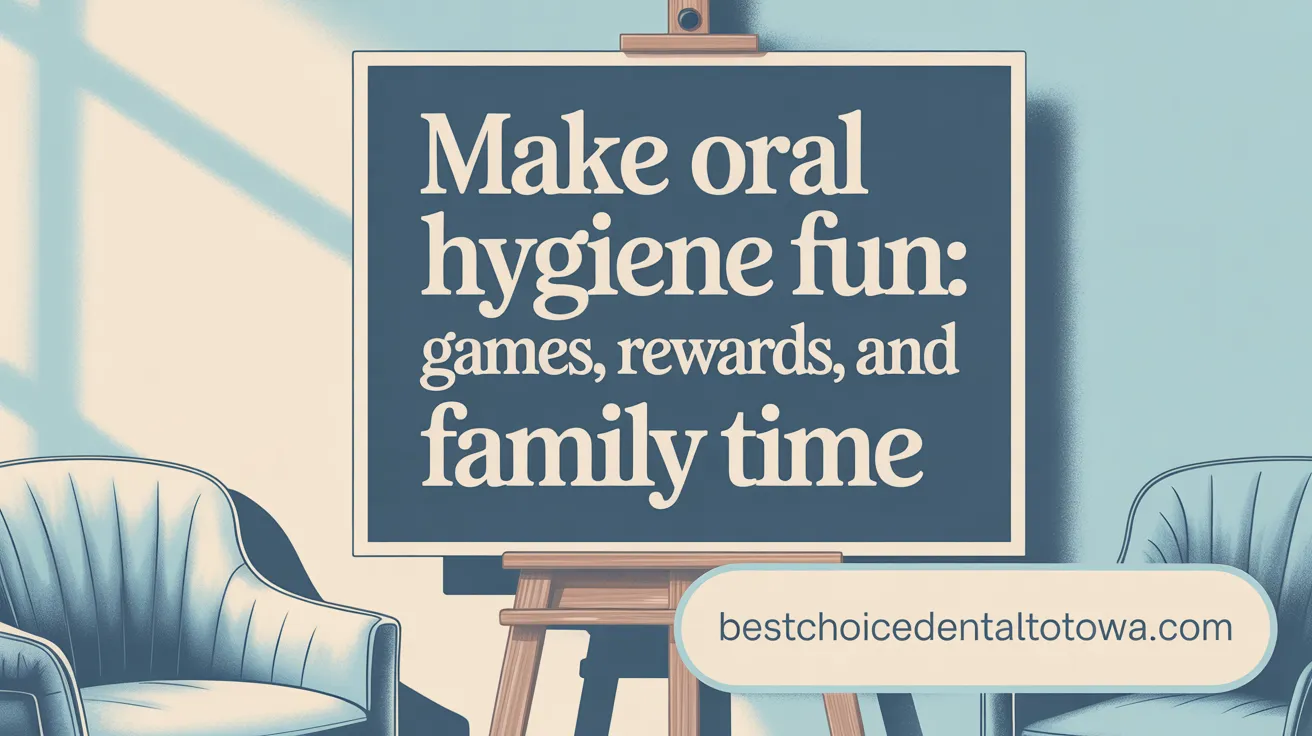The Foundation of Family Oral Health Starts Early
Establishing healthy dental habits within the family unit is essential for lifelong oral wellness. From infancy through adulthood, consistent practices at home lay the groundwork for preventing common dental diseases like cavities and gum disease, while promoting overall well-being. By setting routines that include proper brushing, flossing, diet, and regular dental visits, parents can guide their children toward maintaining strong teeth and gums, fostering confidence and health for years to come.
Early Beginnings: Oral Care from Infancy

How can parents start oral hygiene practices for their infants?
Parents should initiate Oral Hygiene for Infants early by gently wiping their infant's gums with a soft, damp cloth or using an infant toothbrush after feedings—even before the first tooth emerges. This simple routine helps remove bacteria and sugars that cause cavities and also acclimates the baby to mouth care, laying the foundation for future dental habits.
Infant gum cleaning techniques
Cleaning an infant’s gums involves using a clean, soft cloth or a special infant toothbrush designed for delicate gums. Parents should wipe the gums twice daily, especially after feeding, to eliminate residue that can provoke cavities. This routine also promotes comfort and prevents bacterial buildup during early development.
When should children visit the dentist for the first time?
It is important to schedule a child's first dental visit by their first birthday or within six months after the first tooth appears. Early dental visits allow professionals to check for any oral health concerns, provide preventive care like fluoride varnish if necessary, and guide parents on proper oral hygiene practices for their child.
Parental role in early oral care
Parents play a crucial role by modeling good dental habits and supervising brushing and flossing routines as their child's dexterity develops. Beginning oral care early and making it a positive, consistent part of daily life helps children form lifelong healthy habits.
Use of fluoride toothpaste for children
Introducing fluoride toothpaste should coincide with the eruption of the first tooth. For children under 3 years, a very small smear about the size of a grain of rice is adequate. Between ages 3 and 6, a pea-sized amount is recommended. This balances cavity protection with minimizing fluoride ingestion risks. Learn more about fluoride toothpaste usage.
This early attention to oral health supports strong teeth and reduces the risk of decay, setting children up for a lifetime of healthy smiles.
Daily Oral Hygiene Routines for the Whole Family

What are the essential daily oral hygiene practices for families?
Maintaining good oral hygiene as a family involves brushing teeth twice a day for two minutes each time using fluoride toothpaste and soft-bristled toothbrushes. This routine effectively removes plaque and helps prevent cavities and gum disease. Flossing once daily is crucial to clean between teeth where toothbrushes cannot reach, reducing plaque buildup and the risk of decay. Additionally, cleaning the tongue during brushing can help reduce bacteria that cause bad breath. Many families also benefit from using an antimicrobial or fluoride mouthwash to enhance plaque control and strengthen enamel.
How can parents help children develop proper brushing and flossing habits?
Parents play an important role in setting a positive example by demonstrating correct brushing techniques—using gentle circular motions at a 45-degree angle toward the gums as outlined in Proper oral hygiene techniques. Supervision during brushing and flossing is vital until children develop the dexterity to clean effectively on their own, typically around ages 7 to 8 (Parental oversight in dental care). Making oral hygiene fun by incorporating games, songs, or allowing children to pick toothbrushes featuring favorite colors or characters can motivate kids to maintain good habits consistently (Dental hygiene for kids: fun ways to teach good habits).
What types of dental products are recommended for family use?
Choosing the right dental products supports effective oral care. Soft-bristled toothbrushes designed for comfort and safety should be used, with replacements every three to four months or sooner if bristles are worn. Fluoride toothpaste is recommended for all family members to strengthen enamel and prevent decay. Mouthwashes approved by dental associations, preferably alcohol-free, are ideal for children and sensitive mouths to reduce harmful bacteria without causing dryness.
Additional Tips
- Replace toothbrushes regularly to ensure optimal cleaning (Replacing toothbrushes regularly).
- Encourage rinsing with water or mouthwash after meals (Rinsing after eating).
- Incorporate family brushing routines to model and reinforce good habits (family dental routine).
- Limit sugary snacks and drinks to support oral health (Limiting Sugary Foods and Drinks).
These steps provide a comprehensive daily oral hygiene routine that promotes healthy teeth and gums for all family members.
Nutrition and Lifestyle: Supporting Healthy Teeth and Gums

How does diet affect family oral health?
A balanced diet plays a vital role in maintaining strong teeth and healthy gums. Consuming plenty of fruits, vegetables, lean proteins, nuts, seeds, and calcium-rich dairy products helps strengthen tooth enamel and support overall oral tissue health. These nutrients contribute to the natural defenses in the mouth and promote repair processes.
Limiting intake of sugary and acidic foods is crucial because sugar acts as fuel for harmful bacteria that produce acids, which can lead to tooth decay and enamel erosion. Acidic foods and drinks can wear down the protective enamel layer if consumed excessively. Instead, encouraging the family to drink ample water, particularly fluoridated tap water, aids in rinsing away food particles and contributes fluoride that reinforces enamel strength.
What common lifestyle habits should families avoid to protect oral health?
Avoiding tobacco products is essential for good oral health. Tobacco use increases the risk of gum disease, oral cancers, and can impair healing within the mouth. Exposure to secondhand smoke is also harmful, especially for children. Families should discourage habits that may physically harm teeth, such as thumb sucking or chewing on hard objects like ice.
Limiting sugary drinks, especially before bedtime, minimizes prolonged acid exposure on teeth, reducing cavity risk. Promoting consumption of healthier snack options like crunchy vegetables, fruits, nuts, and cheese helps neutralize mouth acids and stimulates saliva, further protecting teeth.
By combining mindful dietary choices with avoidance of harmful habits, families can significantly support their oral health and reduce the likelihood of cavities and gum disease through preventive dental treatments and professional dental cleanings.
The Role of Regular Dental Visits in a Family’s Oral Health

Why are regular dental check-ups important for families?
Regular dental check-ups, ideally every six months, are fundamental for maintaining oral health across all family members. These visits allow dental professionals to perform thorough cleanings that remove plaque and tartar — substances that daily brushing and flossing cannot fully eliminate. Such professional dental cleanings help prevent gum disease and tooth decay (Regular Dental Check-ups, Professional dental cleanings).
Moreover, these appointments enable early detection of dental problems, including cavities, enamel erosion, and tooth misalignments. Early intervention can lead to simpler, less invasive, and more effective treatments, preserving the health of teeth and gums and avoiding more serious issues later (Early detection through regular dental visits, Early detection of dental problems.
How can family dental visits benefit children?
Coordinating dental visits for the whole family helps normalize regular dental care, especially for children. When children see their parents prioritizing dental health and attending appointments, it reduces anxiety often associated with dental visits. This shared experience fosters positive attitudes toward oral care from an early age (Family Dentistry, Building Positive Dental Experiences).
Frequent dental check-ups are crucial to monitor children’s oral development, ensuring that their teeth and jaws are growing properly. Treating any issues early can promote better oral health outcomes and prevent complications as they grow (Regular six-month dental check-ups, Preventing cavities and gum disease).
Additional Benefits of Regular Dental Visits
- Preventive Treatments: Dentists can provide fluoride applications and dental sealants to protect teeth against cavities (Fluoride treatments, Dental sealants for children.
- Building Positive Dental Experiences: Regular visits help children become comfortable with the dental environment, promoting lifelong good habits (Positive Dental Visit Strategies, Building good dental habits.
- Family Coordination: Scheduling visits for all family members simultaneously promotes convenience and supports collective oral health management (family dental routine, Regular Family Dental Visits.
In conclusion, regular dental appointments every six months play a key role in preventive dental treatments, detecting problems early, and encouraging a proactive oral health culture within the family (Six-Month Dental Cleanings, Preventive dental care advantages).
Creating a Positive and Engaging Oral Care Environment at Home

Making oral hygiene routines fun
Parents can encourage children to maintain good oral hygiene by turning brushing and flossing into enjoyable activities. Using games, singing songs, or choosing toothbrushes featuring favorite characters helps make the routine feel less like a chore. Fun techniques engage kids and foster positive associations with daily oral care.
Using rewards and positive reinforcement
Offering praise, stickers, or small rewards for consistent brushing and flossing motivates children to keep up their habits. Positive reinforcement builds a sense of accomplishment and encourages responsibility for personal dental care from an early age.
Modeling healthy behaviors
Children learn by example, so parents maintaining their own oral hygiene routines demonstrate proper care and its importance. Brushing and flossing together as a family strengthens routines and shows kids how to do it correctly.
Incorporating oral care into daily family life
Integrating oral hygiene into morning and bedtime routines supports consistency. Programs like 'Brush, Book, Bed' combine brushing with reading stories before sleep, turning dental care into a cherished family ritual that promotes both oral health and literacy.
Utilizing educational resources and tools
Interactive apps, colorful toothbrushes, flavored fluoride toothpaste, and children’s dental kits make oral care engaging. Educational books and videos help children understand why dental health matters, reinforcing good habits learned at home and school, as detailed in Oral Health Education.
| Strategy | Description | Example or Tool |
|---|---|---|
| Fun Routines | Games, songs, character toothbrushes | Singing during brushing |
| Positive Reinforcement | Praise, rewards, stickers | Reward chart |
| Modeling Behavior | Parents brushing/flossing with children | Family brushing time |
| Daily Integration | Consistent morning and night routines | 'Brush, Book, Bed' program |
| Educational Tools | Apps, books, videos, flavored toothpaste | Interactive dental kits |
Sustaining Healthy Habits for Lifelong Smiles
Establishing and maintaining healthy dental habits at home is fundamental to preventing common oral diseases and promoting overall health for the entire family. Starting care early, fostering consistent daily routines, supporting nutritional choices, and ensuring regular dental check-ups form a comprehensive approach that protects smiles through all stages of life. When families embrace oral hygiene as a shared and enjoyable responsibility, they empower each member toward a lifetime of confident, healthy smiles.
